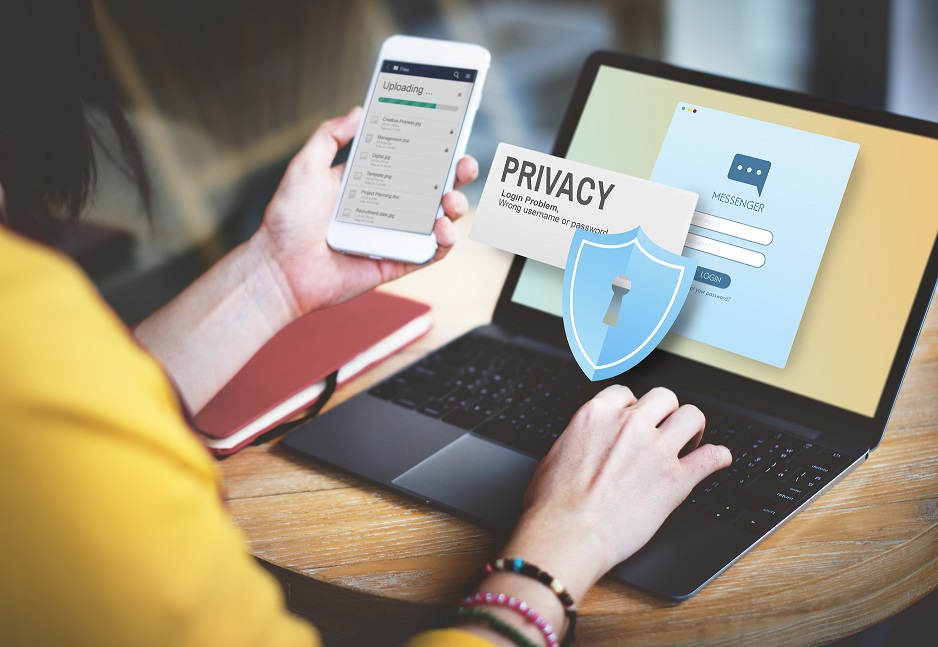The internet is the most rapid method of communication, but it is not the most secure. You run the danger of security issues when you choose to be online because the internet is rife with fraud and shady deals.
We’ve included all the information you require in this article to help you utilize a VPN free online to safeguard your online privacy.
What Is A VPN?
When browsing the internet, the virtual private network enables you to remain anonymous and private. VPNs hide your IP address by establishing a tunnel between your device and the server, making it impossible for your ISP to monitor your online activity. You might as well be somewhere else because of the tube.
The primary function of a virtual private network is to mask your IP address, enabling you to access any geo-restricted content. Employing a VPN safeguards your online privacy or even makes it more challenging for a third party to access any kind of server-based activity you engage in.
How Can Your Online Privacy Be Violated?
There are many problems related to online users’ safety, and they are particularly exposed to security risks. Only the most important issues relating to online privacy are covered here.
● Mishandling Of Data
You must provide personal information to several websites to use their services. Some websites frequently save cookies together with your personal information for further use. This data is often not secured and thus accessible to anyone. There could be serious repercussions from this improper management of sensitive information. Sharing your bank account information and other sensitive information online creates opportunities for thieves and leaves you open to cyber criminals.
● Identity Theft
Legal and financial issues might result from identity theft. Make sure the location is secure before leaving your data there. Never give your personal information on any website like your name, birth date, email, and phone number.
Ensure that you periodically check your credit reports. You must promptly become aware of any unauthorized credit card use. Your passwords ought to be secure and challenging to crack. Use 2FA on all your accounts to ensure that, even if someone were to discover your passwords, they would be unable to access them. Use a VPN to hide your locations online.
● Website monitoring
Cookies are used by every website. Nevertheless, because the rules have changed, you must now click Agree before they can store cookies on your device. You can launch your browser in incognito mode to keep it safe. The cookies these websites store will be instantly removed if you shut the window in this manner.
● Location Monitoring
Your device contains various apps that can track your whereabouts. Although some of them are real, hackers might use others to track your whereabouts. What if they find out that you’re away and nobody is at home? It might be harmful to you and your loved ones.
Cybercriminals can hack legitimate apps to discover users’ geolocation. Keep your location turned off when not required to avoid this, or use a VPN to hide your location. Ensure an app can only monitor you when it is active and is not permitted to do so in the background when you grant it permission to track your location.
● Spying
Many trackers spy on you when you’re online for various reasons. Your search history is recorded, and trackers use multiple techniques to keep tabs on your online actions. Infringing online privacy policies and turning you into public property gives them a complete image of your identity. For the majority of the time, this tracking is done only for marketing purposes and enables advertisers to display advertising based on your preferences and interests. Yet, there are times when thieves use this data for unlawful and illegal purposes, putting your online existence in danger.
How Does VPN Protect You and Your Devices?
In this section, we’ll talk about how VPNs safeguard your online privacy on your devices.
● A VPN Guarantees Privacy
Online security and privacy are not always guaranteed. In actuality, it’s frequently taken. Marketers, social networking platforms, and applications frequently keep tabs on your identity, activities, and residence.
Location tracking is impossible with a VPN. You essentially hide your location from advertisements by using a VPN service. It is difficult for advertisers to offer adverts depending on your location because of that hidden location.
● A VPN Provides Anonymity
As opposed to privacy, anonymity is a little different. You are entirely anonymous, thus. It’s one thing to be private in the idea that no one can follow your every move when you browse websites or make purchases, watch movies or download tv programs, or visit websites or shop online.
Online anonymity provides many benefits. You can use further security measures to secure your identity after you set up the VPN connection and mask your location. The most typical is secure email. While sending a secure email over a VPN, your financial information is protected from prying eyes.
Conclusion
As a result, a VPN is an excellent tool for preserving your online privacy. It masks your IP address and encrypts your internet connection. In addition, virtual private networks safeguard public Wi-Fi networks and offer access to information that is forbidden.
